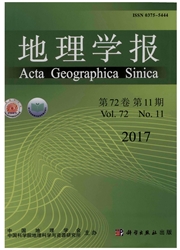

 中文摘要:
中文摘要:
传统经济学视角出发的个体生活满意度研究往往忽略了数据的嵌套性,多层级模型更适用于地理学中分析不同层级地理单元特征对个体生活满意度的影响。采用多层级定序因变量模型,以北京为例,研究居民生活满意度在城市内部街道和居住小区尺度内的异质性,并研究了高层级地理空间单元的属性特征对居民生活满意度的影响。结果表明,生活满意度在居住小区层级的异质性远高于街道层级,个体自身的社会经济属性对个体的生活满意度有显著影响,总的来说,高收入、老年人、北京户口居民的生活满意度更高。除个体属性特征以外,居住小区的类型是影响生活满意度的重要因素,商品房小区居民的满意度显著高于保障房和单位房小区居民。
 英文摘要:
英文摘要:
Life satisfaction, a stable and long felling of life, denotes how well people thrive. In the last decade,scholars from different academic fields including psychology, sociology, geography, economy and so on have contributed a lot of research on the relevant topics. Besides, life satisfaction is also increasingly being seen as an essential element for the quality of urban development and government policy, therefore, followed by the scientific interests is the concern of administrative authorities who believe public policy should be about enhancing life satisfaction of the people. Although the highest rate of growth in GDP in Chinese urban, the economic growth did not promise an equal level of the improvement of residents' life satisfaction.According to the previous research, there is little study that focus on life satisfaction from the perspective of Human Geography in China, especially lack of research that the influence of geographical unit effect on residents' life satisfaction. Traditionally, single-level model was used in previous research to analyze the influence, which ignoring the similarity of individuals who living in same geographical unit and the clustering effect of groups.Worse still, single-level models do not fully exploit the hierarchical nature of geography data that are increasingly available and that can be utilized to provide more information about the role of geography at different spatial scales. In this aticle, we use ordered category response multilevel model to analyze that how the characteristics of sub-districts and community affect residents' life satisfaction. Based on large scale survey in 2013 in case of Beijing, several conclusions are drawn as follows: 1) There are life satisfaction heterogeneity both at sub-district and community level, and the heterogeneity at community level is bigger than sub-district level. 2)Individual attributes also affect subjective well-being(SWB). In general, weak groups, such as low-income families, nonlocal hukou people and old peopl
 同期刊论文项目
同期刊论文项目
 同项目期刊论文
同项目期刊论文
 期刊信息
期刊信息
